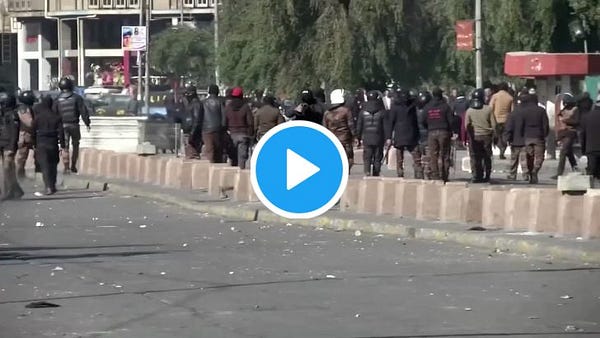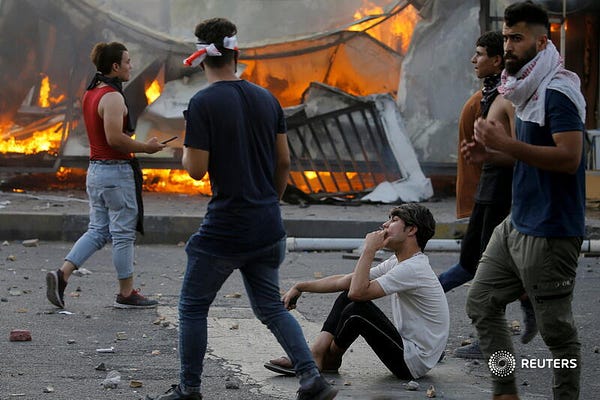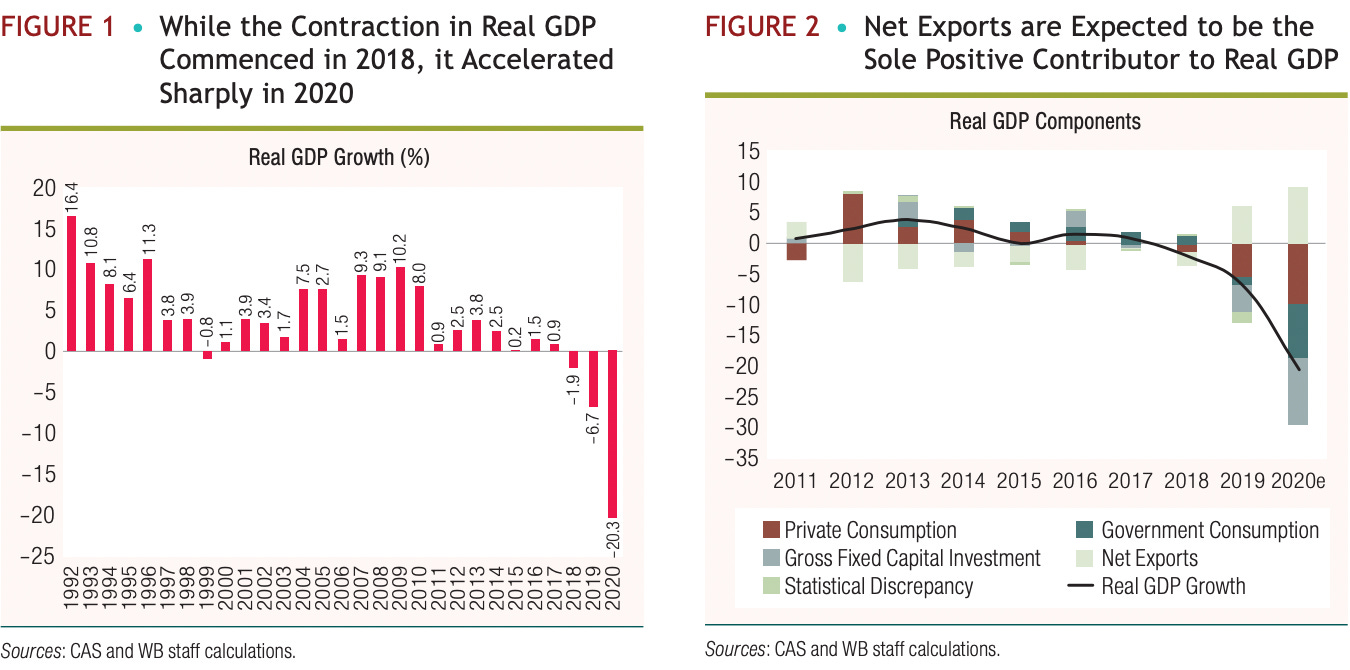🌍 Inside The Middle East — June 3
Netanyahu Set to be Ousted as PM, Assad Wins ‘Sham’ Election, Iraqis Protest Murdered Activists, Lebanon Crisis Worst in 150 Years, Iran Navy Ship Sinks, World's Oldest War Memorial Found
Hello folks! Welcome to another action-packed edition of Inside The Middle East, where today we truly do have a full slate.
Today we’ll visit Israel where a new coalition has formed to oust Prime Minister Benjamin Netanyahu after 12 years; Iraq where protests have spread over several murdered activists and journalists; Lebanon whose multiple crises have been ranked among the world’s worst in 150 years; Iran whose largest navy ship has sunk; and Syria where President Bashar al-Assad won another “sham” election, and also where the world’s oldest war memorial has been found.
Be sure to check out Mirela’s amazing Data Corner from yesterday, where she gathered 80 datasets on important issues around the Middle East. And Monday’s job board where Daniel stressed the importance of starting your side hustle right now, including five subscription giveaways!
Jobs and data below, let’s do some news!
Job Corner ✍️
We added another 371 jobs over the weekend, with even more to add this evening. Preview below and subscribe! 🤙
If you’re a paying member, your jobs sheet link will remain the same. Interested in a free week’s trial? Reply to this email and we’ll hook you up!
Data Corner 🧮
A few datasets referenced in today’s edition…
Data Corner: More than 80 datasets on various issues around the Middle East
Lebanon Crisis: Latest economic data explaining Lebanon’s financial crisis, from the World Bank
Israeli Election Results: Historical results, from the Jewish Virtual Library
Israeli Coalition to Oust Netanyahu
We start this week in Israel where Prime Minister Benjamin Netanyahu’s 12-year reign is set to end, after a coalition of rivals agreed to form a government. Opposition leader Yair Lapid informed President Reuvin Rivlin that he’d agreed a deal between a diverse group of right, centrist and left-wing parties. The group includes the United Arab List, which marks the first time a party from Israel’s Arab minority will be in government. The coalition will need to be approved by the Israeli Knesset next week. Also taking place yesterday was the election of new President Isaac Herzog by Israel’s parliament.
Similar to a previous coalition deal struck between Netanyahu and former opposition leader Benny Gantz, leader of the far-right Yamina party Naftali Bennett will serve as PM for the first two years, before handing the reigns to former journalist-turned-centrist politician Lapid. The political chaos over the past two years that included four general elections isn’t set to stop, as Lapid has hinted at the end of the occupation, while Bennett openly opposes a sovereign Palestinian state.
We’ll update you next week on what’s next for Netanyahu, who is currently on trial for corruption.


Assad Wins ‘Sham’ Syrian Election
To Syria whose first presidential election since 2014 saw Bashar al-Assad win a fourth term in office. In an election widely seen as rigged, Assad won 95.1 percent of the vote while turnout was 78.6 percent. Similar to the 2014 election held at the height of the civil war, an inevitability of Assad’s reelection engulfed public opinion. Last week’s election saw a far larger boycott of the vote from the opposition, and casting a ballot was once again not made available to the whole country.
Assad ran against two government-approved opposition candidates, with the regime’s main aim to portray a return to normality after a decade of devastating civil war that has technically not yet ended. Nearly half a million have died during that time, and more than 6 million have been displaced. After the Assad administration recaptured much of the country, a fragile ceasefire between the Assad administration and rebel forces is currently in place around the last rebel stronghold of Idlib. But as we know, the situation could change in an instant, especially with the unpredictable nature of Turkish President Recep Tayyip Erdoğan and Russian President Vladimir Putin behind the ceasefire.

Iraqis Protest Against Murdered Activists and Journalists
Moving onto Iraq where large protests have taken place over a wave of deadly attacks on pro-democracy activists and journalists, including civil activist Ihab Jawad al-Wazni. What started as a peaceful demonstration in Baghdad’s Tahrir Square, quickly descended into violence as security forces cracked down on protestors in the early evening with tear gas and live ammunition to disperse the crowds. One protester died and at least a dozen were injured.


The nationwide protests began in 2019, with Iraqis under the age of 30 playing a pivotal part in decrying corruption, poor public services and high unemployment. Since then, nearly 600 demonstrators have been killed, and around 35 activists have died in 82 targeted killings, according to the Iraqi High Commission for Human Rights. Protestors expressed outrage that despite investigations into the murders, perpetrators haven’t been named and it’s believed that the killers are associated with Iran-backed militia groups. As a result, there are mounting calls to boycott October’s parliamentary elections.


Last Time on Inside The Middle East…
🌍 Inside The Middle East — May 27
🌍 Israel-Palestine Violence Explained — May 13
🌍 Inside The Middle East — April 29
🌍 Inside The Middle East — April 22
Lebanon Crisis Among World’s Worst in 150 Years
To Lebanon next where the country’s ongoing political and economic crisis has been ranked as one of the world’s three most severe in the past 150 years by the World Bank. The country’s GDP fell 40 percent from $55 billion in 2018 to an estimated $33 billion in 2020, with GDP per capita also plummeting by around the same percentage. The World Bank predicts the Lebanese economy will shrink by another 10 percent in 2021 with “no clear turning point on the horizon’’.

Several reasons are responsible for Lebanon’s multiple crises: The country’s political class for deliberately inadequate policies causing rapid economic deterioration; the Covid-19 pandemic; and last year’s port explosion that killed at least 200 people, wounded more than 6,000 and destroyed much of Beirut.
The crisis has worsened in recent months due to a power struggle between the president and prime minister-designate, which has delayed the formation of a new government. Lebanon has been without a fully functioning government since the blast last August. World Bank regional director Saroj Kumar Jha said “Only a reform-minded government, which embarks upon a credible path toward economic and financial recovery’’ can reverse the further decline of Lebanon.
Iran’s Largest Navy Ship Sinks in Gulf of Oman
Iran next whose largest naval ship caught fire and sunk in the Gulf of Oman. The blaze began in the early hours of Wednesday morning and the vessel eventually sank near the Iranian port of Jask, around 800 miles southeast of Tehran in the Gulf of Oman. According to state media, 33 of the 400 crew members suffered injuries. The vessel, known as the Kharg, is a logistical support ship that carries supplies for other vessels, and is the second support ship out of action this year after the MV Saviz was attacked in March.
Government officials have so far offered no explanation for the fire, but it comes after a series of unexplained explosions beginning in 2019, that targeted ships in the Gulf of Oman. It follows a series of embarrassing mishaps for the Iranian navy, including its own missile accidentally striking an Iranian vessel during a training exercise last year, which killed 19 sailors and injuring 15.


Syrian War Memorial Could Be World’s Oldest
We return to Syria to close out this week, where a burial mound in the northern part of the country has been identified as likely the world’s oldest known war memorial. The White Monument in Tal Banat dates back at least 4,300 years and holds at least 30 Syrian warriors. It was previously known as an ancient mass grave of enemy fighters, but a report in the journal Antiquity suggests it was a memorial for the community’s battle dead from the 3rd millennium BC.
Anne Porter, a professor of ancient Near and Middle Eastern Civilizations at the University of Toronto said the discovery shows “that ancient people honored those killed in battle, just as we do.”
Unfortunately much of the mound was lost due to severe floods in the 1990s during the construction of the nearby Tishreen Dam. The surviving remains are heavily damaged as well due to ISIS, which had control of the area early in the Syrian Civil War. Little is known about the town surrounding the monument, including what civilization it belonged to. It’s thought to have been an independent town, part of the broader cultural sphere of Ebla and Mari, two major city-states that dominated ancient Syria at the time.


See you tomorrow for Picks of the Week! 👋






